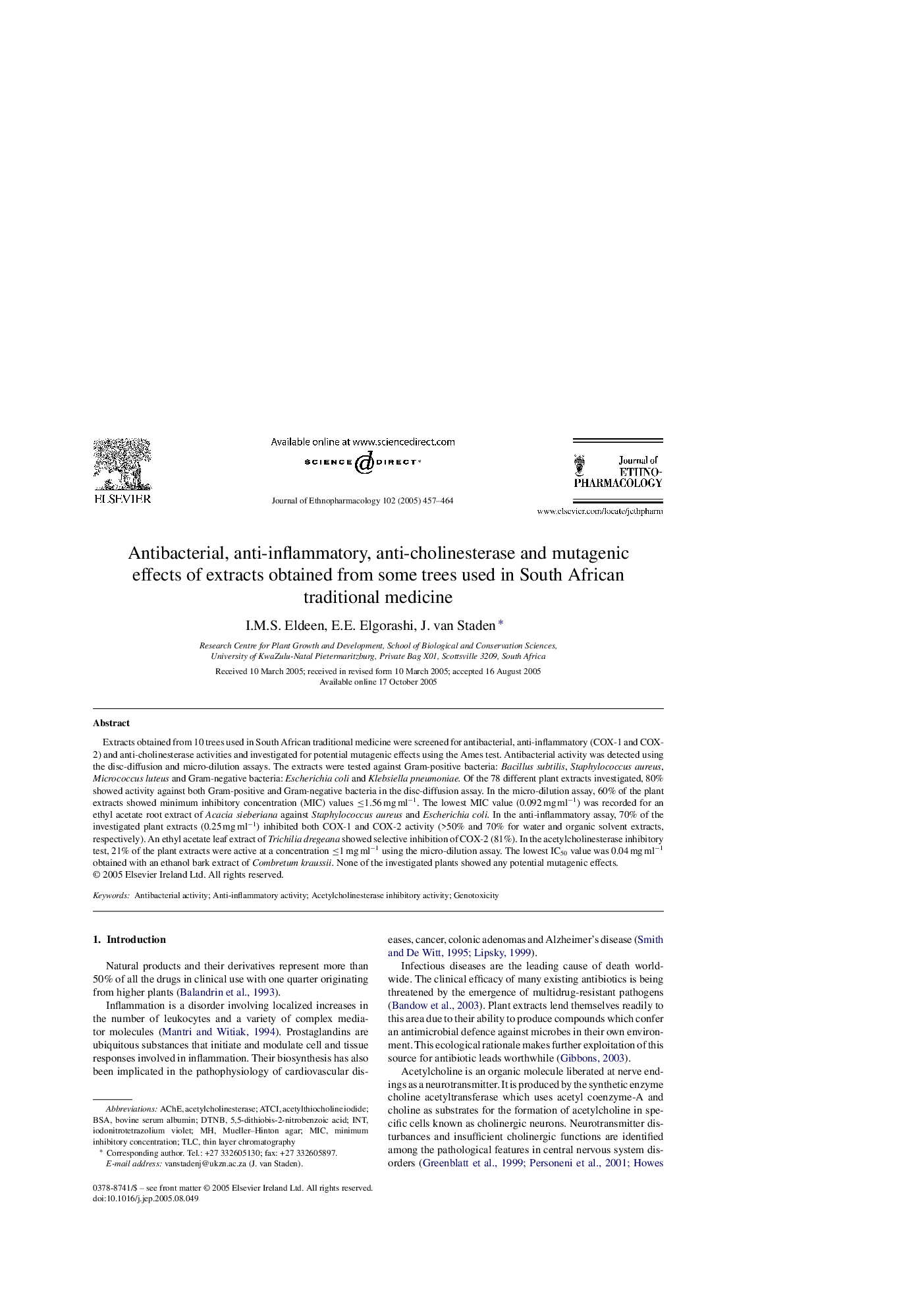| Article ID | Journal | Published Year | Pages | File Type |
|---|---|---|---|---|
| 9010232 | Journal of Ethnopharmacology | 2005 | 8 Pages |
Abstract
Extracts obtained from 10 trees used in South African traditional medicine were screened for antibacterial, anti-inflammatory (COX-1 and COX-2) and anti-cholinesterase activities and investigated for potential mutagenic effects using the Ames test. Antibacterial activity was detected using the disc-diffusion and micro-dilution assays. The extracts were tested against Gram-positive bacteria: Bacillus subtilis, Staphylococcus aureus, Micrococcus luteus and Gram-negative bacteria: Escherichia coli and Klebsiella pneumoniae. Of the 78 different plant extracts investigated, 80% showed activity against both Gram-positive and Gram-negative bacteria in the disc-diffusion assay. In the micro-dilution assay, 60% of the plant extracts showed minimum inhibitory concentration (MIC) values â¤1.56 mg mlâ1. The lowest MIC value (0.092 mg mlâ1) was recorded for an ethyl acetate root extract of Acacia sieberiana against Staphylococcus aureus and Escherichia coli. In the anti-inflammatory assay, 70% of the investigated plant extracts (0.25 mg mlâ1) inhibited both COX-1 and COX-2 activity (>50% and 70% for water and organic solvent extracts, respectively). An ethyl acetate leaf extract of Trichilia dregeana showed selective inhibition of COX-2 (81%). In the acetylcholinesterase inhibitory test, 21% of the plant extracts were active at a concentration â¤1 mg mlâ1 using the micro-dilution assay. The lowest IC50 value was 0.04 mg mlâ1 obtained with an ethanol bark extract of Combretum kraussii. None of the investigated plants showed any potential mutagenic effects.
Keywords
Related Topics
Health Sciences
Pharmacology, Toxicology and Pharmaceutical Science
Pharmacology
Authors
I.M.S. Eldeen, E.E. Elgorashi, J. van Staden,
